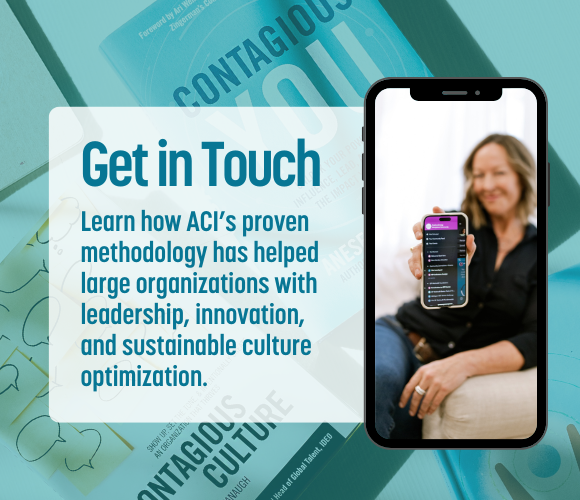 I was recently interviewed for an article about creating better cultures. A study had been done looking at how companies actually view the importance of culture and what they actually do about it...
I was recently interviewed for an article about creating better cultures. A study had been done looking at how companies actually view the importance of culture and what they actually do about it...
View vs. do... There is often a gap.
The interviewee came up with 10 collective tips on how to bridge the gaps mentioned in the study, mine was number 5. You can check that article out right here. (Heads up, good stuff!)
And there's more...
From my work with organizations and biz leaders who are intensely committed to creating impact in the world, AND building healthy cultures in order to create said impact, I had other thoughts as well...
How do you bridge that gap between what an organization says is important about culture and what they actually do about it? Cultural change can be intimidating, daunting, complicated... or it can be simple. Either way, to borrow some cliches, "it takes a village", it can be hard to "see the forest through the trees", and it's "easier said than done". However if you look beyond all the complexities, you'll find it might be even simpler than you think...
In its simplest form? And at the risk of using another cliche...
We must be the change we wish to see. And... (wait for it)... If it's to be, it's up to me.
Oh my. But truly.
The first, and possibly simplest, step to bridging that gap is in increasing the awareness that every single employee and leader in the company emanates the culture. Often people think that they work in a culture or that the culture needs to shift, when actually [tweet_quote hashtags="@IEPMethod" ]every single person in the organization emanates the culture they work in.[/tweet_quote] Yes... every person (and this means you) IS the culture.
This means that everyone has significant power in creating the environment and culture they want to have. This is one of the biggest gaps I see in "culture mindset". People see culture as something outside themselves (or something that needs to be changed by leadership), when really they ARE the culture. With awareness and intention on everyone's part, culture can shift. Add that awareness and intention to actual initiatives and productive conversations and they're much more likely to shift, and sustain over time.
Culture shifting and optimization has to be an organic "inside out," even energetic approach, regardless of the financial or tangible investments applied to it.
So what are some tangible things you can do to nurture your workplace culture starting today? (Feel free to add yours below!)
- Envision and intend... Set a shared vision for the culture you actually want to have. This can start with leadership, but ultimately - as much as possible - should have buy in and co-creation with the entire organization.
- Consider values, individual and organizational... Sort for organizational values that live "within" the vision of that culture. In that cultural vision, what are the values that are being honored? In order to create that culture, how would each person have to show up to live those cultural values? Put things in place individually and as a team that support these actions. If each person brings themselves to this with intention, you're on your way.
- "Give" people the "power" to create the culture they want to create... The first step is inviting them to reflect on what the culture is that they're actually creating now (in how they show up, communicate, give feedback, take risks, help others succeed, etc.) vs. what they actually want to create. (If it's different, hop to!)
- Walk your talk... If leadership says that culture is important - then honoring it, giving people space and awareness to create it, and showing up in a way that has integrity with the culture they'd like to emanate will be key.
- Put your money where your mouth is... If culture is important, make sure you invest in the initiatives that support that culture... i.e. If a culture of health is important, spend money on healthy food and environments; if a culture of risk taking and authenticity is important, reward it. If you want your organization to be a teaching and learning culture, invest in training and development to support that, etc.
- Give people the space to "think"... What is the culture they want to create? How are they showing up in a way that creates that, or not? Are they contributing to the culture they want? Or detracting from it? It starts with the individual...
- Show up... Yes, you. If you want it to look a certain way, be the change...
A little goes a long way. What's the littlest thing you can do, starting right now, to create the culture and environment you most want? Chances are, that shift will start with you. Go.
Image courtesy of Michal Marcol / FreeDigitalPhotos.net.
.png)





